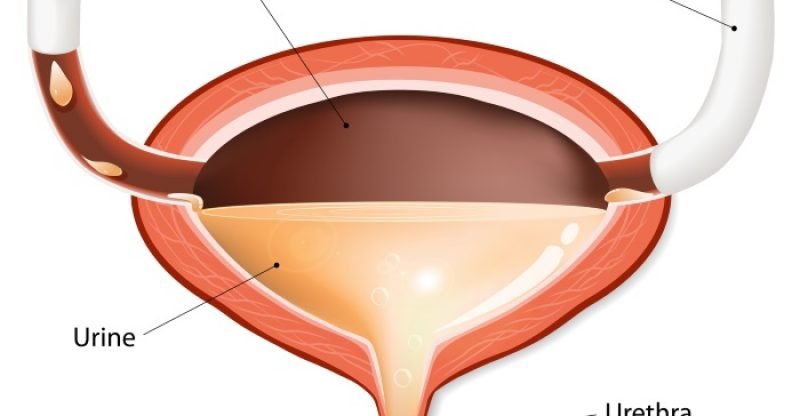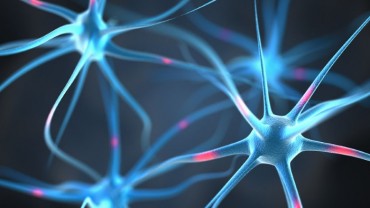Cloudy Urine Causes and Natural Treatments
Paying attention to the color of your urine can help you know when there might be trouble. Your kidneys perform a vital function for your body, and your urine is the waste they eliminate from various bodily functions. So if your urine is cloudy or discolored, it could indicate that something is wrong.
Our guide helps you decipher the messages your urine sends you about your health. We offer suggestions and natural remedies to help treat the common problems that might cause cloudy urine, such as urinary tract infections. Your urine’s color, amount, and odor indicate that everything is working fine or something is amiss. Cloudy urine, in particular, can be a sign of infection or other health problems.
Understanding what healthy urine should look like and how to use your urine’s color to help determine possible health issues can help you avoid problems and be aware of potential medical problems quickly. In addition, understanding your body’s healthy functioning is key to detecting possible problems.
There are many natural ways to keep your body’s systems working well and treat issues that may be causing cloudy or discolored urine. Keep reading to learn all our best tips for your kidney health, including natural treatments for urinary tract infections and other urinary problems.
Causes of Cloudy Urine
Your kidneys serve as a filter for your blood. Each kidney contains over a million filtering units that continuously process your blood each day. Fluids and waste products enter these units, and through a multi-step process, waste products are removed, and filtered blood returns to your body.
The waste products create urine, which is then stored in the bladder until it is eliminated from your body. When your kidneys or bladder are not working correctly, you will notice a difference in the color or clarity of your urine. The ideal color of your urine is a pale, straw color that is transparent. If your urine is discolored or is hazy or cloudy, this is a sign of possible problems. Because urine is essentially the waste from your blood, it can provide helpful information about your health. Several problems could be affecting your health that results in cloudy urine.
While most issues that cause cloudy urine are minor, a few can be serious. The most easily-remedied cause of cloudy urine is dehydration.
Dehydration was the likely culprit if you notice cloudy urine that resolves after drinking more water. Drinking plenty of water every day will help you avoid this problem in the future. If you are dehydrated, your urine may also be dark yellow, amber, honey, or brown in color.
Some medical conditions or disorders cause your urine to contain crystalline compounds or excess proteins, which results in foamy or cloudy urine. Urinary tract infections (UTIs) are the most common culprit, with bladder infections, or cystitis, being the leading UTI responsible for cloudy urine.
If you are pregnant and notice cloudy urine, it may be due to a UTI, a common pregnancy complication. If you are pregnant and see this symptom, visit your doctor or a medical facility quickly, as this can have severe repercussions for both you and your baby. Bacterial infections during pregnancy can result in low infant birth weight and preterm labor, so don’t wait if you are pregnant and you think you have a UTI. If you are part of the five percent of the population who suffer from kidney stones, you may also notice you have cloudy urine.
It is actually pus, caused by an infection in your kidney, bladder, or urethra from damage done by the rough kidney stone as it tries to pass through. If you have severe pain, cloudy urine, and painful urination, seek medical attention. Kidney stones are extremely painful to pass, and a doctor may be able to help break up the stone or reduce your pain while it is passing from your system.
Another possible cause of cloudy urine is gonorrhea or chlamydia, both sexually transmitted infections (STIs). Both men and women can contract gonorrhea or chlamydia, which causes infection in the rectum and genitals, resulting in cloudy urine. Cloudy urine can also be caused by more severe illnesses, such as diabetes, heart disease, and pre-eclampsia, which affect other systems in your body but result in added proteins or bacteria in your urine. Besides the color and clarity of your urine, you must pay attention to other symptoms, including pain, discharge, or foul smell.
Some common signs and symptoms to watch out for include the following.
- Transparent urine means you are drinking too much water. Back off your liquid intake a little until you notice a pale yellow return to your urine.
- Urine that is brown in color could indicate liver disease. If you also have fatigue, weight loss, or yellowing of your skin, seek medical help.
- Orange urine is a sign of severe dehydration. If drinking more water does not help, you could have problems with your bile duct or liver.
- Pink or red-tinged urine can indicate the presence of blood, which several issues could cause. Call your doctor if you have not recently eaten blueberries, beets, or rhubarb but have pink or red urine.
- Green or blue urine can be caused by food dye or certain medications, but you may have a genetic condition if it persists. Check with your doctor.
If you have cloudy urine that lasts a day or two, you are likely fine and have nothing about which to be concerned. If, however, you notice cloudy urine consistently, talk with your doctor. In addition, write down all the medications you take and all the foods you have eaten, as these impact your urine output. Also, examine your sexual history, as discharge from intercourse can mix with urine, making it appear cloudy.
If you seek medical help, your doctor will likely order a urinalysis, which uses a sample of your urine to test for the presence of proteins, infectious agents, and other compounds. A urinalysis will also evaluate the urine’s concentration and other characteristics, telling your doctor important information. For example, the most likely culprit for cloudy urine is a bladder infection, which can be confirmed with a urinalysis.
Bladder Infection Symptoms
A bladder infection, or cystitis, is generally caused by bacteria, usually Escherichia coli (E. coli), entering the urethra. It causes inflammation in the bladder, which results in pain, discomfort while urinating, and cloudy urine.
Many people refer to a bladder infection like a UTI. Women are especially susceptible to UTIs because of the short distance between the anus and the urethra. Their urethrae are very short, meaning bacteria do not have to travel far to cause an internal infection. Especially after sexual intercourse, improper hygiene is usually responsible for most UTIs in women.
Because the bacteria in the bladder causes inflammation, you often feel as if you need to urinate frequently, and you may have a burning or stinging sensation when you pee, as well.
For some, especially women, a bladder infection is particularly uncomfortable when the bladder is empty.
Other symptoms of a bladder infection include:
- An urgent need to urinate;
- Difficulty holding urine in;
- Feeling as though you need to pee, but only a little urine is released;
- Urine that is cloudy or is pink or red-tinged, suggesting the presence of blood;
- Urine that has a strong or foul smell
Cloudy Urine Natural Remedies
If you have cloudy urine from a UTI or other minor cause, there are many ways to treat it naturally, without resorting to antibiotics. While antibiotics effectively treat some infections, frequent use of them can cause serious health problems, including antibiotic resistance. By treating UTIs with natural remedies, you avoid the overuse of antibiotics, restore the health of your system, and destroy the harmful bacteria that cause infection.
Here are our favorite natural remedies for treating problems that cause cloudy urine.
Probiotics
Because a UTI is caused by bacteria that multiply and live in your urinary tract, having plenty of natural antimicrobial probiotics in your system is a good first line of defense.
Your GI tract and vagina have natural flora that resists infection and maintain your pH balance, so ensuring the health of your probiotic levels is essential. Help your body resist an invasion of UTI-causing bacteria by eating probiotic-rich foods.
L-Arginine
The amino acid l-arginine helps your body detoxify and resist infection with its antibacterial properties. In addition, this amino acid can help your bladder regenerate cells, which may help treat some bladder disorders. L-arginine can control the growth of pathogens that cause UTIs, as well.
In addition to supplements, l-arginine can be found naturally in chickpeas, lentils, turkey, pork loin, soybeans, pumpkin seeds, peanuts, chicken, spirulina, and most dairy products.
Pineapple
Fresh Pineapple contains the enzyme bromelain, which helps treat UTIs. In addition, Pineapple’s antimicrobial properties help reduce the pathogens that cause bladder infections.
One cup per day can help treat your cloudy urine symptoms.
Quercetin
The antioxidant quercetin can help your body reduce bladder inflammation and reduce the symptoms of a UTI. If you have a bladder infection, taking quercetin can help relieve the burning, urgency, and pain associated with this type of infection, as well as reduce urine cloudiness.
Quercetin is available as a supplement, and foods such as berries, broccoli, and leafy greens are also excellent sources of this antioxidant.
Coriander Seeds
With natural antimicrobial and diuretic properties, coriander seeds are another helpful tool for treating UTIs and the symptoms they cause, like cloudy urine.
Boil one teaspoon of coriander seeds in one and a half cups of water for three to four minutes. Strain out the seeds, then drink the tea. Repeat twice a day until symptoms dissipate.
Garlic
Garlic has been used for centuries as an antibiotic, antifungal, and antiviral treatment. In addition, garlic is known to boost immunity and reduce inflammation, which can be very helpful in the treatment of a UTI or other infection. Finally, garlic oil combined with parsley can help control the growth of bacteria in your system.
Parsley
Parsley has natural anti-inflammatory and detoxification properties. It is also a natural diuretic, so it can be beneficial in treating UTIs.
Cranberries and Cranberry Juice
If you have frequent UTIs, eating cranberries, taking cranberry supplements, or regularly drinking cranberry juice can help limit your recurrence of the infection.
Cranberries are a natural diuretic, and using them to prevent UTIs proactively can save you pain and discomfort and avoid the need for antibiotics to treat them.
Baking Soda
Baking soda is naturally alkaline, so it can help reduce urine acidity and treat the inflammation and other symptoms of a UTI, such as cloudy urine. Drink a glass of water mixed with one teaspoon of baking soda each day when you have an infection.
In addition to the above natural remedies, other treatments or habits can help you avoid UTIs and other medical conditions that cause cloudy urine and other urinary tract symptoms.
Stay Hydrated
Drinking plenty of water is essential for many essential bodily functions, especially your bladder. Without enough water, waste stays in your bladder longer, allowing pathogens more time to multiply.
Urinating frequently and with sufficient flow can help remove the microbes that cause UTIs and other bladder and kidney problems before they can take hold. Those chronically dehydrated are more likely to suffer from UTIs and kidney disease, as proper function depends on sufficient water intake.
Also, holding urine for a long time in your bladder promotes infection, so be sure to drink enough so that you have to pee regularly.
Avoid Certain Foods
Some foods and drinks can exacerbate the symptoms of a UTI or other urinary problems. If you have a UTI, avoiding these can help you feel better quickly while your body is healing.
The foods most likely to increase your discomfort from a UTI include carbonated beverages, alcoholic beverages, spicy foods, caffeine, citrus fruits, tomatoes, and vinegar. In addition, other foods that contain arylalkylamine can increase UTI symptoms.
These include nuts, onions, yogurt, sour cream, beer, cheese, mayonnaise, and raisins. If you have frequent bladder or kidney problems, avoiding these foods can be helpful.
Acupuncture
If you are prone to UTIs, acupuncture may be able to help.
Research indicates that women especially show reduced recurrence of cystitis with acupuncture therapy. As we age, the muscles in our bladders that control voiding relax, and it becomes harder to empty your bladder completely. This residual urine is a prime breeding ground for UTIs. Those who use acupuncture experience less residual urine and are less likely to contract frequent UTIs.
Avoid Harsh Skin Treatments
For women, the skin in their genitals is susceptible to changes in its natural flora.
Bubble baths, vaginal creams, bath oils, and other products can significantly alter this natural flora, leaving you susceptible to infections that cause cloudy urine, like a UTI. Also, do not use on your genitals anything that contains harsh, synthetic ingredients.
Use Proper Hygiene, Especially After Sex
By using proper hygiene techniques, women and men can reduce their likelihood of contracting a UTI or other urinary problem. For women, wiping from front to back minimizes the spread of E. coli to the urethra. Urinating after sex and wiping correctly to avoid contamination of your genitals is also essential. If you are sexually active, avoid multiple partners to reduce your risk of an STI as well as a UTI. In addition, women should avoid douching and the use of spermicides and diaphragms, which cause vaginal and urethral irritation.
Precautions
If you notice cloudy urine, it does not automatically mean you have a serious health problem. If your urine remains cloudy or discolored for several days, though, trying some of our suggested natural remedies can be helpful. If symptoms persist despite treatment, seek medical help. Many factors can cause cloudy urine, and some, like STIs, should be treated right away.
Your doctor will need to do a urinalysis to determine the cause of your cloudy urine. Observing the color and clarity of your urine provides helpful feedback about your overall health. Cloudy urine can be a symptom of dehydration, kidney stones, a sexually transmitted infection, or a urinary tract infection. If you notice you have cloudy urine, have urgency or difficulty urinating, or have pain with urination, you may have a bladder infection.
Using one of our suggested natural remedies, such as probiotics, garlic, parsley, or cranberries, may help change your habits to include proper hygiene and drinking more water. With the proper attention, your urinary tract can be healthy and functional again in no time.
FDA Compliance
The information on this website has not been evaluated by the Food & Drug Administration or any other medical body. We do not aim to diagnose, treat, cure or prevent any illness or disease. Information is shared for educational purposes only. You must consult your doctor before acting on any content on this website, especially if you are pregnant, nursing, taking medication, or have a medical condition.
HOW WOULD YOU RATE THIS ARTICLE?







I have cloudy urine but only in the morning. Should I worry about this?
If cloudy urine isn’t accompanied with other symptoms, should it be a reason for visiting a doctor?
Can breast milk cause cloudy urine in an infant?